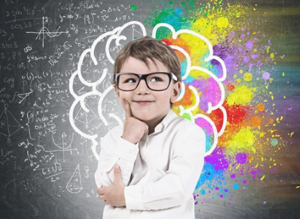What can I do to support my child’s transition to school? Your child's development - 3 to 5 years
What can I do to support my child’s transition to school? Your child's development - 3 to 5 years
This information has been sourced from the Early Years Learning Framework Developmental Milestones booklet, developed by the Community Child Care Co-operative for the Department of Education. Your child is ready to transition to school when they are reaching the following milestones:
• Enjoys playing with other children – provide your child with opportunities to interact with others through a kindergarten program, early childhood education and care service or playgroup.
• May have a particular friend – encourage friendships with other children by providing opportunities for interactions
• Shares, smiles and cooperates with peers – encourage your child to interact by role modelling good communication skills; showing your child how to enter social situations e.g. smiling; and discussing social ‘rules’
• Jointly manipulates objects with one or two other peers – again encourage interaction with others in social and play situations by providing a range of toys and other resources
• Developing independence and social skills they use for learning and getting on with others at Kindergarten and school – support your child to be independent e.g. opening their own lunchbox; tying their own shoe laces; putting on sunscreen
Essential brain development occurs in the first years of a child's life. When you look at the years in which the main brain development is made and the effect this development has in schooling and later years, the importance of positive experiences in the early years is clear. As a parent or caregiver, you can support your child's early development by providing a safe and nurturing environment with learning opportunities and minimal stress.
Ante-natal
Your child's brain has already started developing. All 5 senses begin to function before birth. During this time, prenatal sensory experiences help shape the brain and nervous system.
2–6 months
Significant 'wiring' of the brain occurs in the first years of a child's life and your baby's brain is developing as a result of the experiences and relationships they are exposed to each day. Babies learn emotions through observing their parents and caregivers, and how they react to various movements and sounds such as crying, yelling, smiling and cooing.
6–9 months
By 9 months your child's brain has already undergone a rapid growth spurt that helps form connections between what they see, hear, feel and taste. Playtime and interactions with parents and family members provide key learning opportunities for early development.
3 years
By 3 years of age, a child's brain has around 1,000 trillion brain connections (synapses). The early years are a rapid period of brain development which can be fostered by positive relationships with parents and optimal community environments for families and children. Engaging with your child and providing a safe environment and physical care to your child has a significant impact on your child's development.
3–5 years
By school, a child's brain development is built upon the now solid foundation created in the first 5 years. It is more difficult for children to take advantage of learning environments, such as school if they have not had optimal early learning experiences or a nurturing home environment.
Adolescence
When adolescence is reached, brain synapses will number around 500 trillion, a figure that remains relatively steady into adulthood. Brain development prioritises the connections used most often, resulting in 'pruning' of the brain networks and circuits.
If you have a child who will be starting Prep in 2023, please contact the school office 54367313.
Mrs Sue Zweck, Head of Teaching and Learning K-5

